The treatment you are offered will depend on the stage of prostate cancer, as well as your general health and fitness.
How is prostate cancer treated?
Prostate cancer can be treated with:
- active surveillance - keeping an eye on things
- surgery
- radiation treatment
- hormone therapy
- chemotherapy
- immunotherapy
Your treatment team will talk to you about what options are best for you.
Some treatments for prostate cancer can make you impotent and infertile.
Before any treatment begins, make sure that you have discussed and understood your treatment team's advice. You may ask for a second opinion if you want one.
From the time that you are diagnosed with prostate cancer, you may be cared for by one or more of a team of health professionals, including:
- your family/whānau doctor (GP) who will often be the first person you see
- a urologist – a doctor who specialises in the care of men with prostate cancer, providing medical and surgical care
- medical oncologists – doctors who are responsible for prescribing targeted therapies, immunotherapy, chemotherapy and other aspects of cancer care
- radiation oncologists – doctors who specialise in the use of radiation treatment
- radiation therapists – people who plan and give you your radiation
treatment - a cancer nurse coordinator and/or clinical nurse specialist – a person who acts as a point of contact for you in different parts of the health service. They support and guide you and your family/
whānau to keep you fully informed about your care - outpatient nurses – nurses who work alongside doctors during their clinics.
- Mā te mōhio ki te wāhanga o tō matepukupuku repe ure, e āwhina i tō rōpū maimoa ki te whakamahere i ō maimoatanga.
- Ka whakaritea he whakamātau toto prostate specific antigen (PSA) ki te ine i te taumata PSA kei roto i tō toto. Mehemea
- kua piki tō PSA, he tohu tēnei kua piki ake te mōrea o tō whai i te matepukupuku repe ure, e ai ki te tangata whai taumata PSA pai.
- Ara anō ētahi atu take, atu i te matepukupuku, piki ai te PSA, nō reira, kāore e taea te whakamahi i te whakamātautau PSA anake ki te whakatau i te matepukupuku repe ure.
- Ko te whakamātautau ā-mati tou, ko te pāorooro, ko te unuhanga ētahi atu whakamātautau.
Mehemea kei roto te matepukupuku i to tauira unuhanga, ka tauinetia mā te whakamahi i te tauine ISUP (whakaritea ai ki tō kaute Gleason). - He huarahi te mahi tauine ki te kōrero i te momo āhua ō ōu pūtau matepukupuku, te tere o tā rātou tipu, me te āhua o tōna kaha ki te hōrapa ki wāhi kē o te tinana.
Tērā pea ka whakahaerehia ētahi atu titiro whakatau pērā ki te CT, ki te MRI rānei, ā, i ētahi wā, he titiro whakatau ā-kōiwi.
Ka whakamahia ngā putanga o ngā whakamātautau me ngā titiro whakatau ki te kārawarawa i te wāhanga taumata o tō matepukupuku – tōna rahi, me tōna kaha rauroha.
Active surveillance
If your test results show the cancer has a very low risk of spreading, you may be offered active surveillance. This means the cancer is not immediately treated but is watched closely.
The treatment team will keep an eye on the cancer with:
- regular blood tests to check PSA level - every three to six months
- biopsies
- MRI scans
If things change and the cancer becomes more of a risk, your treatment team will offer you more treatment options.
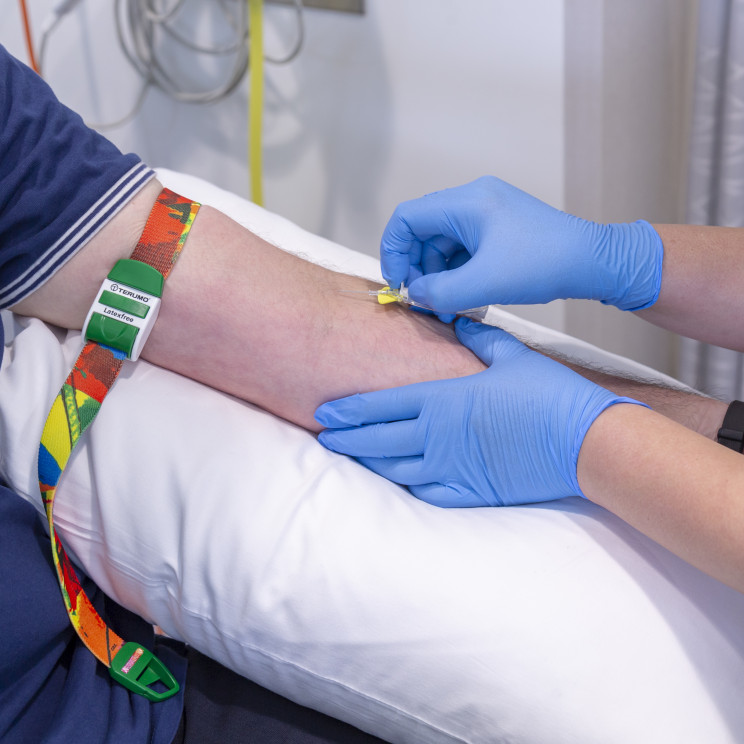
Surgery for prostate cancer
If the cancer has not spread in your body, the whole prostate gland can be surgically removed. This is called a radical prostatectomy.
During the surgery, your surgeon will try to save the two bundles of nerves attached to the prostate that help you get erections. This is only possible if the cancer is not in or close to these nerves.
Sometimes lymph nodes are also removed during the surgery if the cancer has a higher risk of spreading.
Cryotherapy for prostate cancer
If the cancer is in one place within your prostate, cryotherapy can be used to freeze and kill the cancer cells. It also will destroy most of your prostate. This treatment is only available privately in Tauranga.
Radiation treatment for prostate cancer
Radiation treatment is the use of radiation beams to destroy cancer cells or slow their growth.
Radiation treatment is usually recommended for prostate cancer:
- if you are not well enough for surgery
- if you have had surgery for prostate cancer but there are signs that not all the cancer has been removed
- to relieve pain caused by cancer that has spread to the bones
- to shrink blocks in your lymphatic or urinary system
- when radiation treatment is your preferred treatment option
There are three types of radiation treatment for prostate cancer:
External beam radiotherapy
The most common radiation treatment for prostate cancer. The radiation beams are given from outside the body onto the area affected by cancer.
Low-dose-rate brachytherapy (permanent implant)
Low-dose-rate brachytherapy is an internal radiation treatment where radioactive seeds are permanently placed inside the prostate gland.
It is used when the cancer is low-risk and found only inside the prostate. It is only available in a few private centres in New Zealand.
After your radiation treatment, you will be radioactive and need to take special care at home. Your treatment team will explain what to do.
High-dose-rate brachytherapy (temporary implant)
High-dose-rate brachytherapy is an internal radiation treatment where radioactive sources are temporarily placed into the prostate with needles.
It is usually used in combination with external beam radiotherapy to treat higher-risk prostate cancer. It may also be used alone to treat low-risk prostate cancer.
Hormone therapy for prostate cancer
Hormone therapy, also called endocrine therapy, uses these hormones to slow or stop cancer growth.
Prostate cancer cells need the male hormone testosterone to grow. There are different ways your treatment team can lower the amount of testosterone in your body.
These treatments include:
Luteinising hormone-releasing hormone
Luteinising hormone-releasing hormone (LHRH) lowers the amount of testosterone made in the testicles. LHRH therapy is usually given as a monthly or three-monthly injection.
Anti-androgen tablets
Androgen is another hormone in the body. Anti-androgen tablets stop testosterone from helping the growth of prostate cancer. They are normally used when LHRH therapy is no longer working well.
Abiraterone
Abiraterone is a hormone therapy that stops your body from making testosterone. This treatment is used for men with advanced prostate cancer where other treatments are no longer working.
Orchidectomy
An orchidectomy is a small operation where the testicles are permanently removed. This treatment is not commonly used.
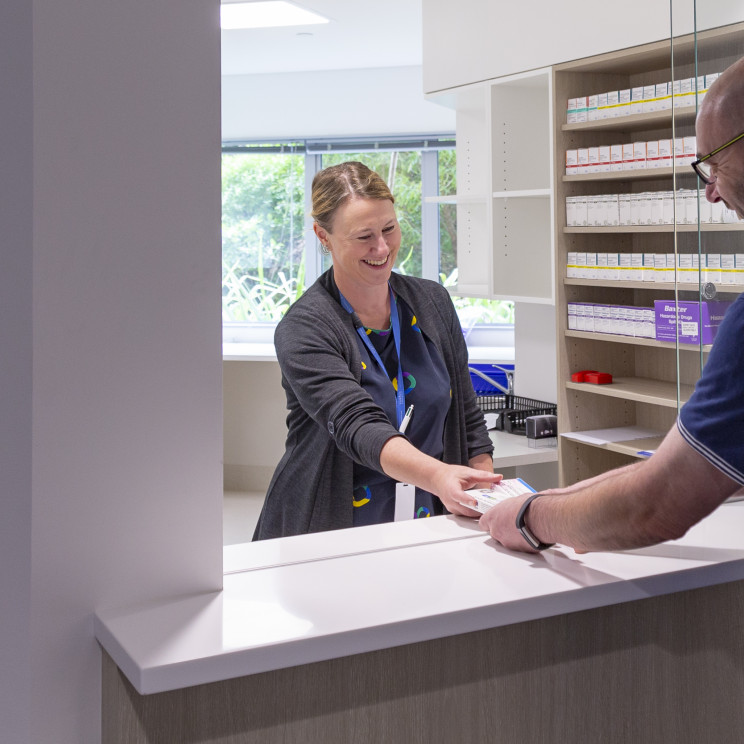
Chemotherapy for prostate cancer
Chemotherapy uses drugs to destroy cancer cells while doing the least possible damage to normal cells.
Chemotherapy may be given for prostate cancer:
- when the cancer has spread outside the prostate
- when hormone therapies are no longer working
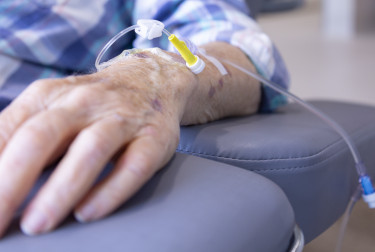
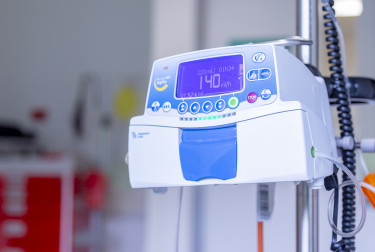
Treatment for advanced prostate cancer
Other treatments for advanced prostate cancer include:
- radiation treatment to painful areas in the bone
- bone-strengthening treatments
- surgery called transurethral resection of the prostate, which is the removal of prostate tissue that is pressing on the urethra and causing an obstruction
Side effects of prostate cancer treatment
There are specific side effects of prostate cancer treatment. For most people, treatment's side effects begin to ease within a few weeks of treatment ending.
Depending on the treatment you have, the side effects may include:
Nerve damage
A bundle of nerves close to the bladder may be damaged during surgery which can cause problems with erections and bladder control.
Erection problems (impotence)
You may have problems getting and keeping an erection. This may take up to two years to recover, or you may not get a strong erection again.
You are less likely to have ongoing problems if the cancer is small, you are young, and you have good sexual function before the surgery.
Infertility
Surgery, cryotherapy, and radiation can cause infertility as semen is no longer ejaculated during orgasm. This is called a dry orgasm, and you can no longer have biological children.
Bladder problems
Radiation treatment can irritate the lining of your bladder and urethra.
You may notice:
- needing to pee more
- a burning sensation when peeing
- problems with the flow
It is normal to lose some bladder control (incontinence) after the catheter has been removed or after radiation treatment. Regular pelvic floor exercises can help with recovery.
Bowel problems
Radiation treatment can irritate the lining of your bowel and rectum (proctitis).
You may notice:
- you pass more wind than usual
- your bowel motions may be looser and more urgent
- you may feel your bowels have not emptied properly
Occasionally, you may experience pain and bleeding. With modern radiation techniques, bowel problems are much less common than they used to be.
Lymphoedema
If you have lymph nodes removed, fluid may build up under your skin. It may affect your legs, penis and testicles. It might happen months or years after the surgery.
Body changes
After surgery, you might notice your penis becomes shorter, but this can reverse over time.
Hormone treatment can cause:
- weight gain
- tender and swollen breast tissue
- loss of strength and muscle mass
- testicles and penis may shrink
- hot flushes and sweats
- loss of bone density after prolonged use
Mood changes
Hormone treatment may make you feel more emotional and increase your risk of depression. If your mood remains low, you lose interest in things or your sleep patterns or appetite change, visit your doctor as these can be signs of depression.
When I was on hormone therapy, I didn’t know what the side-effects would be or how to deal with them. I put on a lot of weight and felt like crying for no reason.
Matt
Palliative care
Palliative care aims to improve your quality of life. It is not just about end of life care.
Palliative care will help:
- you to enjoy the best quality of life you can for as long as possible
- make sure that your physical, practical, emotional and spiritual needs are looked after as well as possible
- manage symptoms of your cancer
- manage side effects of treatment
- help you to feel in control of your situation
- make your time as positive as it can be for you and your family/whānau
Speak with your treatment team about palliative care options for you and your family/whānau.
Using complementary or traditional healing
Sometimes people with cancer might think about using complementary therapies or traditional healing.
Some alternative, complementary and traditional healing methods may react with the treatment you receive and cause harmful side-effects.
It is important to talk to your treatment team about any other therapies you’re using or thinking about because they may interfere with hospital treatment.
Life after cancer treatment
After you finish treatment for cancer, give yourself time to adjust to the physical and emotional changes. We are still here to support you after your treatment finishes.
You will need regular check-ups with your treatment team. These may include some blood tests or physical examinations. Speak with your treatment team about the plan for you.

How to manage the symptoms of cancer and the side effects of treatment.
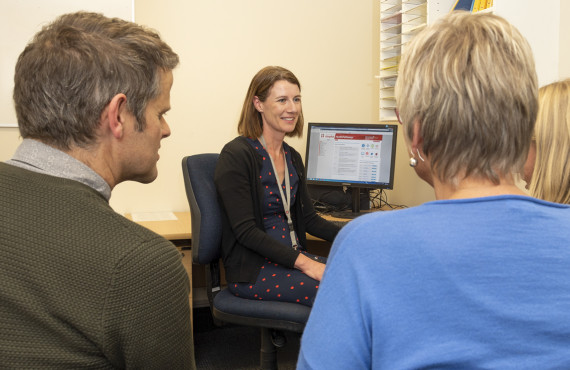
We've put together a list of questions you may wish to ask your treatment team.

We are here to help and support you and your whānau through cancer diagnosis, treatment and recovery…
We know that going through cancer is tough and can raise many questions. You are not alone.
We have health professionals to answer your questions and provide the support you need.
Get in touch
